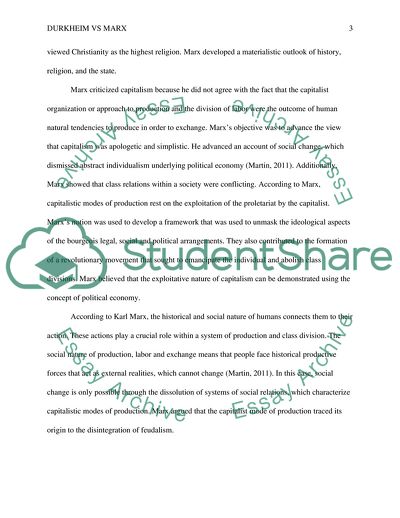Cite this document
(Durkheim vs Marx Views about Society Essay Example | Topics and Well Written Essays - 1250 words, n.d.)
Durkheim vs Marx Views about Society Essay Example | Topics and Well Written Essays - 1250 words. https://studentshare.org/philosophy/1834337-durkheim-vs-marx
Durkheim vs Marx Views about Society Essay Example | Topics and Well Written Essays - 1250 words. https://studentshare.org/philosophy/1834337-durkheim-vs-marx
(Durkheim Vs Marx Views about Society Essay Example | Topics and Well Written Essays - 1250 Words)
Durkheim Vs Marx Views about Society Essay Example | Topics and Well Written Essays - 1250 Words. https://studentshare.org/philosophy/1834337-durkheim-vs-marx.
Durkheim Vs Marx Views about Society Essay Example | Topics and Well Written Essays - 1250 Words. https://studentshare.org/philosophy/1834337-durkheim-vs-marx.
“Durkheim Vs Marx Views about Society Essay Example | Topics and Well Written Essays - 1250 Words”. https://studentshare.org/philosophy/1834337-durkheim-vs-marx.


